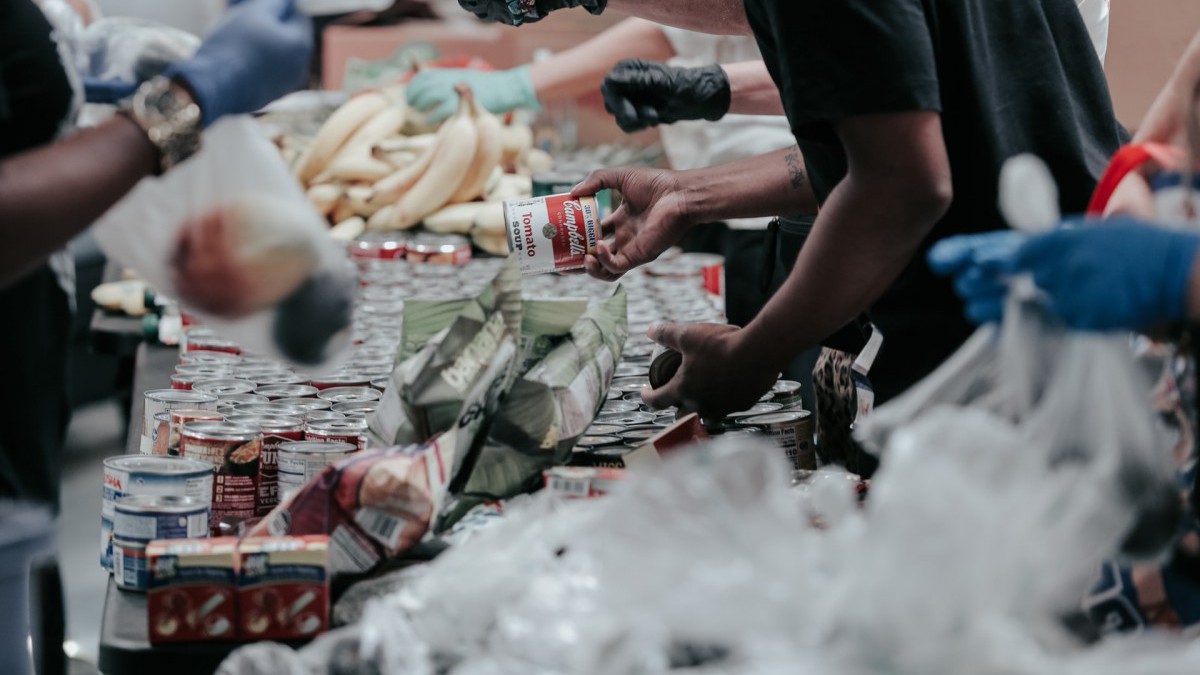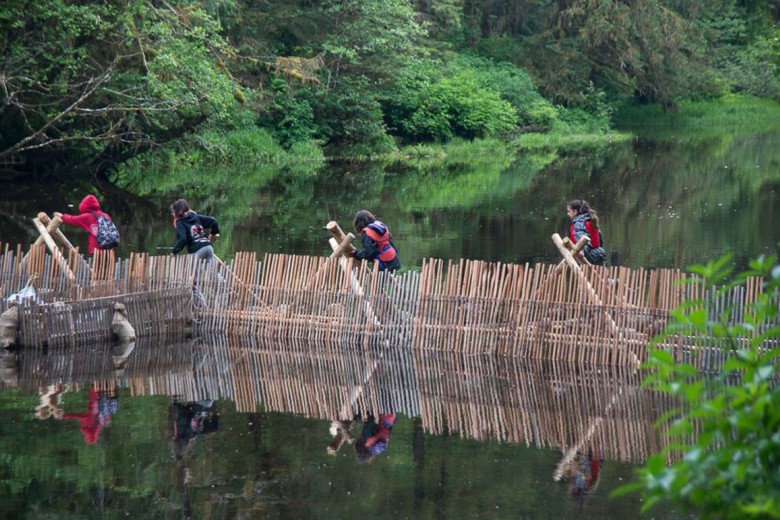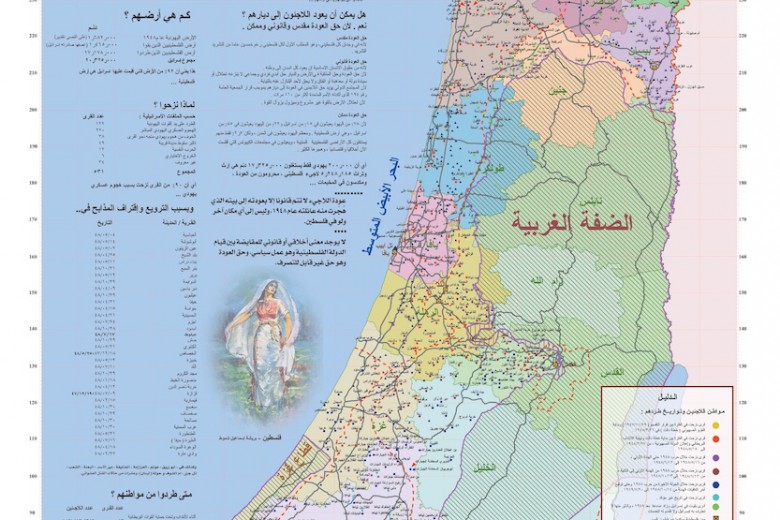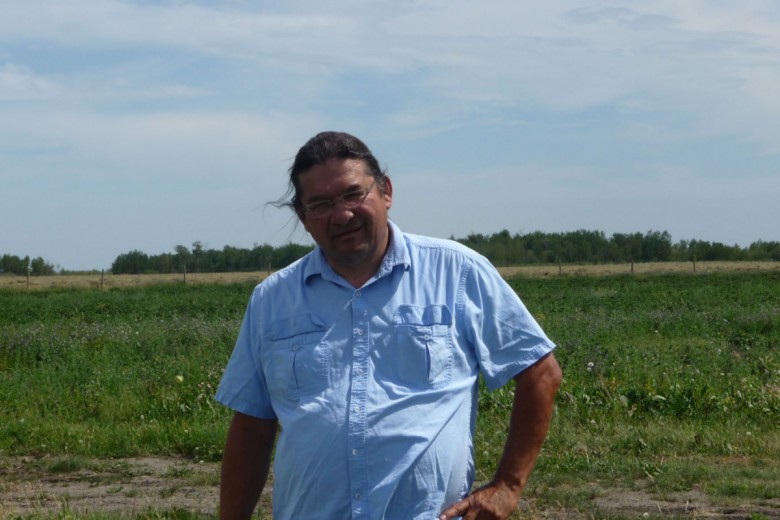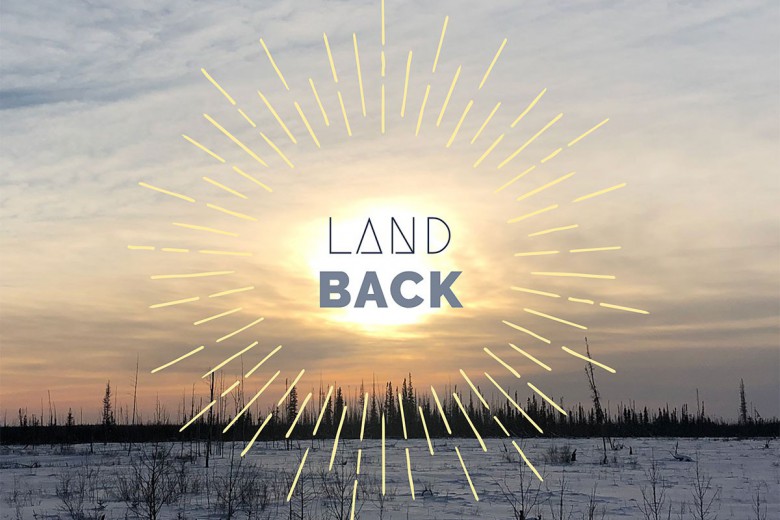Dr. Frederick Tisdall is best known for two things: first, for co-inventing the baby food Pablum, and second, for his research and financial contributions to pediatrics through Toronto’s SickKids hospital. What is less known is how his successes and contributions to nutritional science are based on the mistreatment and exploitation of Indigenous Peoples.
Through the 1940s and 1950s, Tisdall worked closely with the Department of Indian Affairs to conduct nutritional experiments on Indigenous children in residential schools and to develop food purchasing lists that were forced on Indigenous communities. On these lists, which featured only European-Canadian foods, Pablum figured prominently and was recommended to Indigenous parents in place of breastmilk and Indigenous foods.
Tisdall had earlier negotiated an agreement with the Mead Johnson Company whereby SickKids received royalties from every can of Pablum sold, and these royalties funded his research at SickKids for several decades. Yet the role Tisdall played in undermining Indigenous food sovereignty, especially infants’ first foods, remains largely unacknowledged. Instead, the SickKids website’s history page applauds the role played by the institution in the development of Pablum which, it says, “saved thousands of children from death and disease.” The impact of Tisdall’s experiments and efforts to alter Indigenous foodways remains invisible in this philanthropic narrative.
When we say “bad money,” we mean money made through the impoverishment, disenfranchisement, and mistreatment of Indigenous Peoples and lands – like Tisdall’s Pablum royalties.
We tell this story because history has a way of repeating itself. As Indigenous and allied scholars who work in the area of Indigenous food sovereignty, we have noticed a growing trend of settler non-profit organizations receiving donations of what we describe as “bad money.” When we say “bad money,” we mean money made through the impoverishment, disenfranchisement, and mistreatment of Indigenous Peoples and lands – like Tisdall’s Pablum royalties.
Today, corporations committing violence and land theft against Indigenous Peoples continue to donate money to settler non-profit organizations, who use it to fund everything from community gardens to food banks, sometimes under the banner of “reconciliation” and “supporting Indigenous food sovereignty.” Some people argue that the exchange of funds serves the interests of both parties, but we say that doing good things with bad money doesn’t erase the harm that produced it. Instead, as in Tisdall’s case, it only makes the harm less visible.
This trend is especially disturbing because it undermines the reciprocal relationships that exist between Indigenous Peoples and land – by which Indigenous Peoples uphold their ancestral responsibilities to the land, and in return the land engages in its responsibility to care for the people of the land. As a result, we are forced to ask the question: can settler organizations truly support Indigenous food sovereignty and reconciliation using money from modern-day Tisdalls?
Settler moves to innocence
The notion that what is right is whatever makes for a better world in the future became popular through consequentialism, a body of thought advanced in the late 1700s. Yet this superficial understanding of a dated theory is at the heart of how non-profits and corporations claim to practice reconciliation. Old proverbs based on dangerous ideas should have no bearing on how reconciliation is enacted on Turtle Island. It is impossible to separate the destructive processes of settler colonialism from the circumstances they have produced, including the money to participate in and fund philanthropic activities – no matter how well-intentioned the philanthropy may be.
Corporate donations serve as an effective public relations campaign, wherein corporations who violate Indigenous Peoples and lands are reimagined as generous benefactors within the reconciliation movement. While corporations say these donations are part of their “corporate social responsibility,” they are better characterized as “redwashing” – an attempt by a corporation to paint itself as benevolent through Indigenous sponsorship schemes in order to distract from the detrimental effects of its business. Redwashing seeks to naturalize colonialism, including the governance structures and neoliberal values which allow for its persistence, and serves to confuse the public and contain public outrage to acts of land theft and violence against Indigenous Peoples and lands. Meanwhile Indigenous Peoples are painted as unreasonable and violent in their efforts to protect land and water, and in their demands to have stolen lands returned to Indigenous jurisdiction.
Corporations often choose to associate with settler non-profits that have relationships with Indigenous communities, fulfilling their goal of redwashing their public image while bypassing Indigenous communities altogether.
Even less scrutiny is given to the role played by settler organizations who accept these funds. By accepting the donations, settler non-profits distance the money from the violence which produced it. Corporations often choose to associate with settler non-profits that have relationships with Indigenous communities, fulfilling their goal of redwashing their public image while bypassing Indigenous communities altogether. It is particularly troubling to observe the ways in which settler non-profits can brand themselves as “allies” and commoditize their proximity to Indigenous communities for corporate donations. This form of appropriation allows non-profit organizations to reap the benefits of the bad money without having to bear the burden of its consequences.
In these ways both donor and recipient, ostensibly seeking to improve food insecurity in Indigenous communities, are rooted in the larger settler colonial project that works to destroy the land and its peoples. Scholars Eve Tuck and K. Wayne Yang identify these kinds of actions as “settler moves to innocence”: what they call “those strategies or positionings that attempt to relieve the settler of feelings of guilt or responsibility without giving up land or power or privilege, without having to change much at all.”
Redwashing Canada’s mining industry
Here’s one such example: last spring, a collective of Canadian mining companies donated $80,000 to Roots to Harvest (RTH). RTH is a settler not-for-profit organization with a mandate to address food insecurity in the Thunder Bay region, where three of the authors of this article live and work. RTH accepted the donation, using it to distribute food to people most affected by the COVID-19 pandemic, including nearby First Nations. CBC reported favourably on the donation, naming each company in the article and choosing the headline, “Roots to Harvest 'blown away' by $80K donation.” The executive director of the organization told reporters that the partnership between RTH and the mining companies made sense because, as she said, we’re “all in this together.”
The executive director’s quote is reminiscent of the language settler politicians use to downplay colonization: phrases like “we are all immigrants” and the “shared history” of all Canadians. This reconciliation-speak works to obscure the colonial violence of the past and present. The conflation of white settler experiences with those of Indigenous Peoples is in and of itself a form of appropriation, colonialism, and white supremacy. Such discourse is dangerous and provides permission for settler organizations to speak and act on behalf of Indigenous Peoples. It undermines Indigenous self-determination.
Companies on the donor list have also been accused of environmental and human rights violations – to give just one horrific example, Barrick Gold’s security officers have been accused of gang raping several Indigenous women living near a mine in Papua New Guinea.
Among the list of donors to RTH are mining companies like Barrick Gold and Newmont Canada, who forged ahead with business as usual during the global pandemic, and whose lax workplace health and safety standards contributed to the spread of COVID-19 in the Indigenous communities that RTH claims to serve. Companies on the donor list have also been accused of environmental and human rights violations – to give just one horrific example, Barrick Gold’s security officers have been accused of gang raping several Indigenous women living near a mine in Papua New Guinea.
In 2020, a group of legal experts in Ontario sent an open letter to Greg Rickford, the Ontario Minister of Energy, Northern Development and Mines (MNDM), urging Rickford to halt mining permits. They wrote that during the pandemic, Indigenous communities “do not have the time and resources to deal with the consultation burdens associated with the permitting process,” and that “mining companies have consistently ignored pandemic-related threats to the detriment of workers and the communities within which they operate.” Three months later, MNDM posted ten early exploration permits, including six for the company Noront, which is among the donors to RTH. By December 2020 the number of permits continued to rise, representing over 2,000 mining claims.
In doing so, settler non-profits help corporations clean the money of the violence which produced it, inciting new forms of violence in the process.
Accepting donations from corporations that wedge themselves between Indigenous Peoples and the land only make sense to those who wish to retain the logic of colonialism. When settler non-profits take bad money and attempt to do good things, they ultimately uphold a model that reduces Indigenous food sovereignty to something imagined, managed, and operationalized by settler governments, non-profits, and corporations. In doing so, settler non-profits help corporations clean the money of the violence which produced it, inciting new forms of violence in the process. Indigenous food sovereignty can only be enacted by Indigenous Peoples and for Indigenous futures. Otherwise, the colonial barriers that bad money and dangerous ideas reproduce will keep Indigenous Peoples locked in a cycle of dependency, and Canada’s colonial story will continue.
Update, October 29, 2021: This article originally mentioned specific First Nations who received deliveries of food from RTH; their names have been removed at the request of one of the First Nations.


